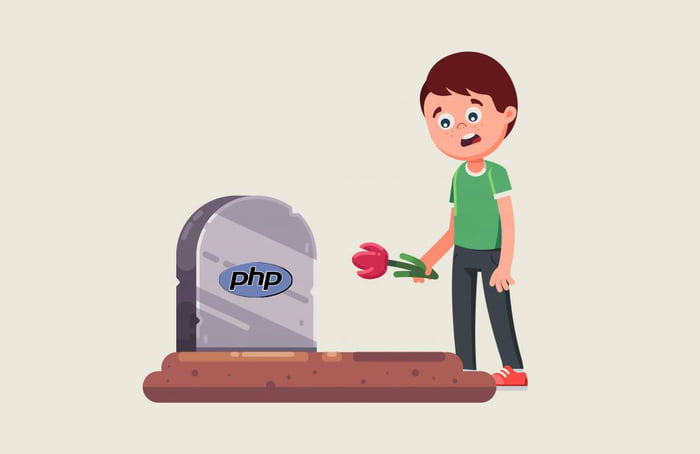RIP PHP 🙏
It is with a heavy heart that we announce the passing of the PHP language. Despite being used by a staggering 80,6% of websites on the Internet in 2015, the once-beloved programming language has succumbed to the advancements of newer technologies.
PHP, which stands for Hypertext Preprocessor, was first introduced in 1994 and quickly rose in popularity due to its ease of use and compatibility with a variety of web servers. It was a staple in the world of web development, powering some of the most well-known websites and platforms, including Facebook and WordPress.
However, as the world of technology evolved, so too did the demands of web developers. The introduction of newer languages such as Python, Ruby, and JavaScript, along with the rise of web development frameworks, made it clear that PHP was no longer able to keep up.
Despite valiant efforts to modernize the language and improve its performance, the writing was on the wall. PHP's time has come to an end, and it will be forever remembered as a pioneer in the world of web development.
But it's time for the community to move on and embrace the new technologies.
In honor of PHP's legacy, we ask that all web developers take a moment to reflect on the countless hours they spent debugging and troubleshooting their PHP code. And as we say goodbye to PHP, let us remember that even the most popular programming language can't escape the march of time.
This tribute was generated by chatGPT.